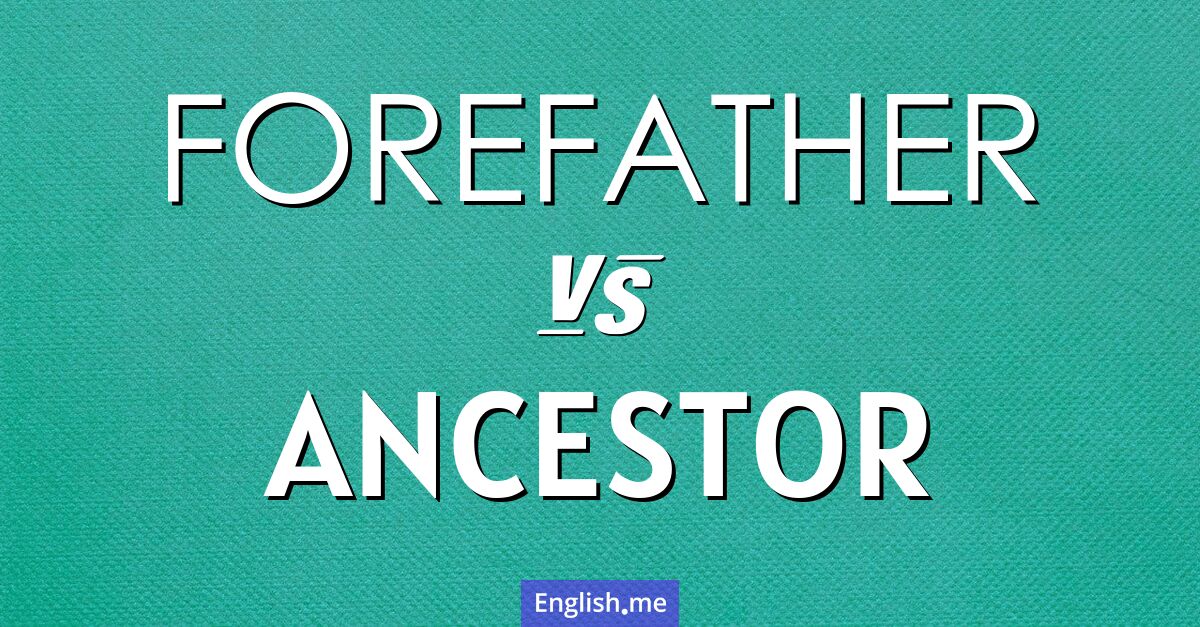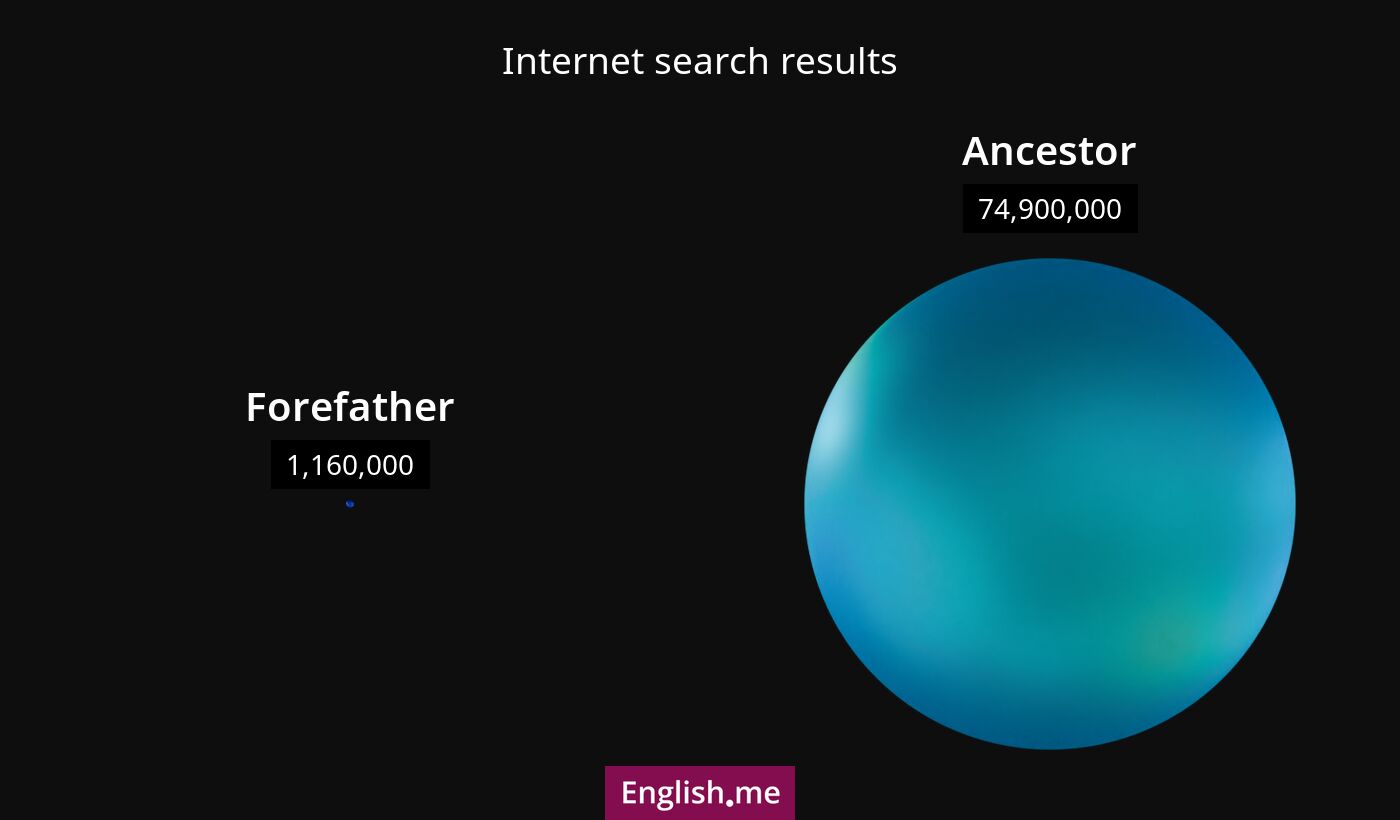Tracing the paths of "forefather" vs "ancestor"
Reviewed and edited by  Anwar Kareem 04/11/2024, 15:24
Anwar Kareem 04/11/2024, 15:24
English.me team member

 What is similar?
What is similar?
Both "forefather" and "ancestor" refer to individuals from whom a person is descended.
 What is different?
What is different?
The word "forefather" often implies a more direct, typically male lineage and is sometimes used metaphorically to refer to founders or originators of movements or traditions, especially in historical contexts. "Ancestor," on the other hand, is a more general term that refers to any person from whom an individual descends and can apply to any gender and a broader historical context.
 Which one is more common?
Which one is more common?

 Examples of usage
Examples of usage
Forefather- He is considered one of the forefathers of modern science.
- Our forefathers fought for the freedoms we enjoy today.
- She traced her family history back to an ancestor who lived in the 1600s.
- The fossils belong to an ancient ancestor of the modern elephant.

 English
English español
español française
française italiano
italiano deutsche
deutsche 日本語
日本語 polski
polski česky
česky svenska
svenska Türkçe
Türkçe Nederlands
Nederlands